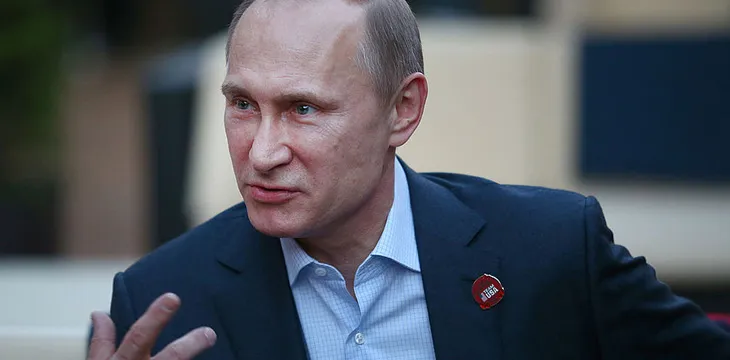|
Getting your Trinity Audio player ready...
|
The Russian president is reigniting a decades-old rivalry saying the US has the Internet, but blockchain technology will be Russia’s.
Both start-up companies and established industry giants are scurrying to cut a piece of the market as blockchain technology ushers in a lot of possibilities and drives several existing practices into obsolescence. But private companies are not the only ones who are going in on the blockchain race. Several governments are also working on their own projects in their bid to be on the front line of the industry, or at least to keep from falling behind.
As early as now, Vladimir Putin is eager to plant the Russian flag on the technology, even if only through a verbal claim (for now). As if it were another Moon race, the Russian president was quick to reignite a decades-old rivalry.
“Look, the Internet belongs to the Americans,” Putin says, “but blockchain will belong to us.”
Putin has been openly interested in and actively endorsing blockchain technology. In June last year, he met with Ethereum founder Vitalik Buterin. Just a few months ago, he met with Herman Gref, the president of Russia’s largest bank, Sberbank, and endorsed the technology, saying the country needs further progress—beyond what they already have. Below is a rough translation of his statement:
“Other colleagues and citizens of the country may ask: Why do we need all this? If we have everything—we have oil, gas, coal, metals of all kinds…gold, platinum, diamonds—everything.”
“But we need to advance further—this is what we need. And we have to work for this,” he added. “One of our colleagues, the former oil minister of an Arab country said: ‘the Stone Age has not ended due to the lack of stones, but because new technologies have appeared. And new technologies are appearing in the world now.”
He added that those who are “late in the race” will quickly become dependent on those who were in the lead.
And despite Russia’s alleged involvement in the US elections, the nation was actually quick to tap on blockchain technology to curb corruption and provide better transparency in voting. Early this year, they started a pilot run for a blockchain-based e-voting system called Active Citizen, although the application was limited to non-political decisions like speed limits and bus routes.

 07-27-2025
07-27-2025 





